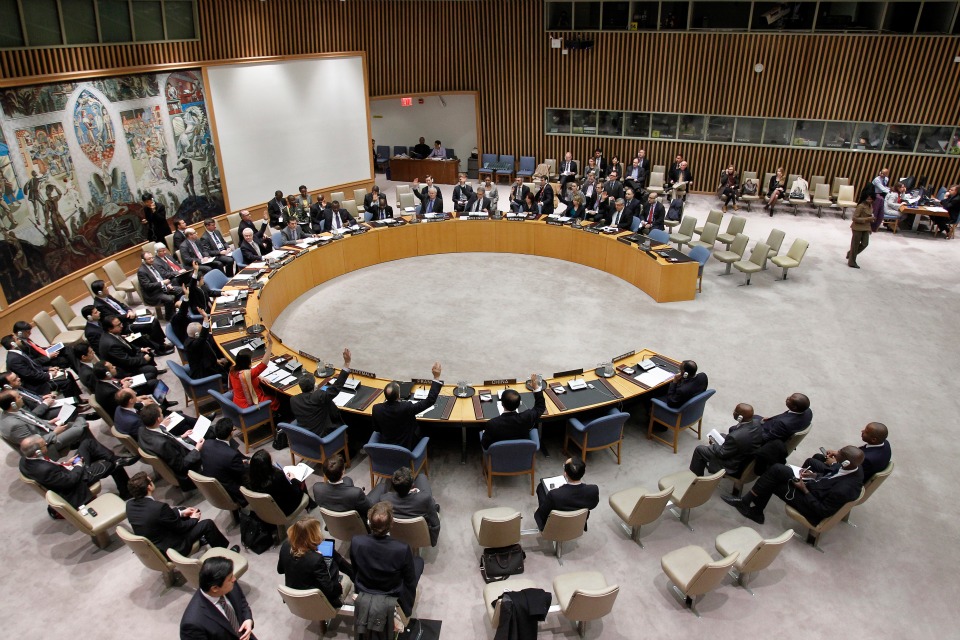'The UK recently announced a multi-year assistance programme for the Sahel worth more than $160 million'
Statement by Ambassador Lyall Grant of the UK Mission to the UN to the Security Council Session on the Sahel

Mr President,
Thank you for convening this session today. I want to thank the Special Envoy for her briefing and offer her our full support. The immediate challenges posed by Ebola Virus Disease in West Africa have attracted much of the international community’s attention in recent months; however it is important that we do not lose sight of a sub-region which faces its own particular concerns, and which thus far is managing to avoid a full-blown assault from Ebola.
Mr President,
Almost two years on from the beginning of the crisis in Mali, the Sahel region remains on the front-line in the struggles against Jihadist terrorists, such as AQIM, Ansar Dine and MUJAO; drug-trafficking and organised crime; food insecurity and poverty; and political instability.
As we have seen with recent events in Burkina Faso, the Sahel region needs the support of the international community if it is to stay on the path towards long-lasting security and development. That means not only responding to crises effectively - and I commend the leadership of the African Union and ECOWAS in Burkina Faso, but also looking ahead and taking early preventive action to avoid instability and violence. And in this area we must do better.
Mr President,
Success in resolving the Mali crisis continues to elude us. In 2014, 31 members of the UN Mission, MINUSMA, have been killed, and almost a hundred wounded in attacks by terrorists. I commend the brave MINUSMA peacekeepers, particularly those from Chad, who face these terrorist threats on a daily basis.
Attacks against United Nations staff are totally unacceptable. Whilst work is under way in the Council to strengthen the Mission’s capabilities and its resilience to the terrorist threat, this alone will not address the underlying causes of the crisis.
Only a political settlement will enable Mali to move forward to a peaceful future. I commend the work of Algeria and other mediators in bringing the parties to the negotiating table, but let’s be clear, the responsibility falls to the parties themselves to find the peace that Mali’s citizens deserve.
It is important that they redouble their efforts, work in a spirit of compromise and joint endeavour, and find practical arrangements that will enable the citizens of Mali to pick up their lives once again.
Mr President,
The challenges facing the Sahel come from both within and outside the region. To the south, the barbaric behaviour of Boko Haram has shocked the world. Yet it has also brought Nigeria and her neighbours – Niger, Chad and Cameroon – to a better understanding of, and cooperation on, mutual security. The United Kingdom will continue to support this important work.
To the north, the prolonged struggle in Libya continues to have repercussions for the Sahel, and the growth of ISIL could threaten the region further. Meanwhile the trafficking of weapons and narcotics across porous borders continues to damage the social fabric and prevents states from governing effectively.
In the face of these challenges, the United Nations Integrated Strategy for the Sahel provides a strong framework to enable the region to tackle these diverse challenges. Its three pillars – of Governance, Security and Resilience – remain the right ones, yet more can be done to implement the Strategy’s priorities.
As the Special Envoy has highlighted this morning, governance is critical. We must work with Sahel states to strengthen human rights including the rights of women, and build the capacity of states to deliver core services, particularly outside urban areas.
On Security, we must continue to build states’ capacity to tackle organised crime and counter-terrorism, and to the manage borders more effectively. The work of the Global Counter Terrorism Forum and the creation of the G5-Sahel group can help to develop more effective regional approaches.
And on Resilience, we need to continue upstream work on developing food security, including preparing for shocks through regional co-operation. With a further UN appeal for the Sahel expected in February 2015, the risks of not doing this important work are clear to see. The United Kingdom, recently announced a multi-year assistance programme for the Sahel worth more than $160 million.
Mr President,
In co-ordinating international work on the Sahel, Madam Special Envoy you, will have an important role to play, and as you take forward the implementation of the Integrated Strategy into 2015, you and your team in Dakar will have the United Kingdom’s full support.
I thank you.